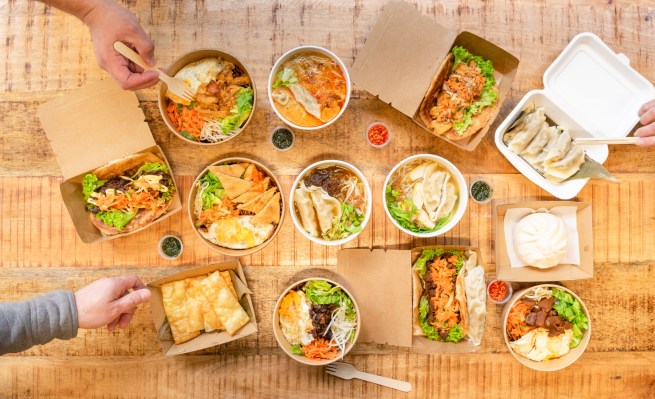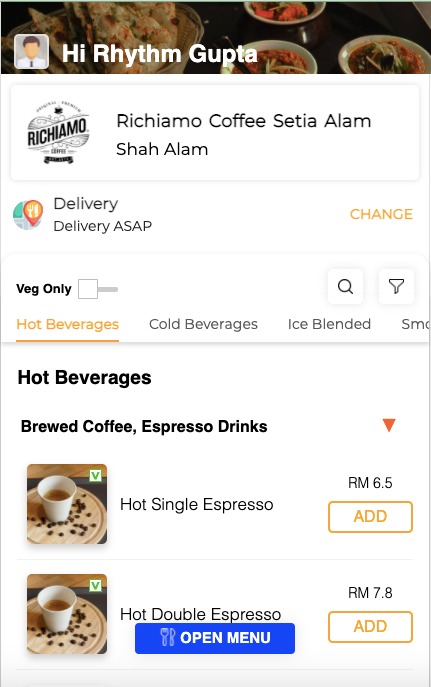Easy Eat AI, a Singapore-based startup that wants to “transform restaurants into technology companies,” announced today it has raised $5 million in funding. Easy Eat AI offers an operating system for restaurants that lets them digitize all parts of their business, from inventory and customer orders to delivery, and gain AI-based data analytics to improve revenue.
Many food and beverage businesses started digitizing orders and payments so they could offer deliveries during the COVID-19 pandemic. Though Easy Eat AI lets restaurants integrate with third-party food ordering apps, it also has its own delivery infrastructure, including on-demand riders, that costs just 4% per order, compared to the 20%-30% that many of the largest food delivery platforms charge.
Founded in 2019 by Mohd Wassem, Rhythm Gupta and Abdul Khalid, Easy Eat AI currently has operations in Malaysia, and plans to expand into other Southeast Asian markets. The funding included participation from Aroa Ventures, the family office of OYO founder Ritesh Agarwal; Reddy Futures Family Office; Prophetic Ventures; OYO global chief strategy officer Maninder Gulati; Alarko Ventures managing partner Cem Garih; and Esas Ventures founder and managing partner Fethi Sabancı Kamışlı.
Wassem told TechCrunch that Easy Eat AI was created because even though Southeast Asia “is a food paradise, everyone eats out, eating out is a culture here,” the restaurant industry is still one of the least advanced digitally. Before the pandemic, he said that about 80% of restaurant business came from in-person dining, but taking orders manually resulted in very little data kept about who customers are, what they like to order or how often they return.
Easy Eat AI’s platform helps restaurants create that digital connection with their customers. Some of its clients include chains like Richiamo Coffee, Mr. Fish Fishhead Noodles, WTF Group and Hailam Toast. During COVID-19 lockdowns, Easy Eat AI has helped restaurants fulfill deliveries and its other features, like targeted marketing campaigns and loyalty reward programs, are relevant to in-person dining, too.
Easy Eat AI’s consumer interface is based on QR code ordering—customers scan the code with their smartphone and are taken directly to the restaurant’s menu online. They pick what they want, then create an account or sign-in by entering their mobile number. Payments and reward programs can also be accessed through the platform.
The company says that after analyzing 100,000 orders at more than 50 restaurants over six months, it found that people spend about 30% more when they order digitally compared to through a waiter—similar to when people go shopping for a specific item online and end up adding more items to their cart while browsing.
After a restaurant uses Easy Eat AI for about 30 to 45 days, it is able to build a customer database for targeted online marketing strategies, sending offers to the people who are most likely to use them.
For example, a month after launching in its third outlet of Mr. Fish, the platform had collected data from more than 1,400 customers. The restaurant was able to see that about 20% visited the restaurant more than once, and the average duration between their visits was 12 days. Based on that information, it created marketing campaigns to draw back people who hadn’t returned in 20 days. During that time, Mr. Fish also started fulfilling delivery orders through Easy Eat AI, and by the end of the month, 13.4% of its orders were coming through the platform, reducing its reliance on third-party delivery apps.
In a statement about the funding, Keshav Reddy, managing partner of Reddy Futures Family Office, said, “The team is customer obsessed and understands the pain problems of the industry. Their innovative software platform will be disruptive to the entire F&B ecosystem and how customers engage through the entire F&B lifecycle in the online-to-offline world.”

